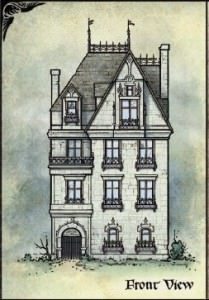
īy the spring of 1942, despite the failure of Operation Barbarossa to decisively defeat the Soviet Union in a single campaign, the Wehrmacht had captured vast expanses of territory, including Ukraine, Belarus, and the Baltic republics. On 2 February 1943, the German 6th Army, having exhausted their ammunition and food, finally capitulated after over five months of fighting, making it the first of Hitler's field armies to surrender during World War II. Nevertheless, the German forces were determined to continue their advance and heavy fighting continued for another two months. The Soviets were successful in denying the Germans the ability to resupply through the air which strained the German forces to their breaking point. Adolf Hitler was determined to hold the city at all costs and forbade the 6th Army from attempting a breakout instead, attempts were made to supply it by air and to break the encirclement from the outside. The Axis flanks were overrun and the 6th Army was cut off and surrounded in the Stalingrad area. On 19 November, the Red Army launched Operation Uranus, a two-pronged attack targeting the Romanian armies protecting the 6th Army's flanks. By mid-November, the Germans, at great cost, had pushed the Soviet defenders back into narrow zones along the west bank of the river. The battle degenerated into house-to-house fighting as both sides poured reinforcements into the city.

The attack was supported by intense Luftwaffe bombing that reduced much of the city to rubble. On 4 August, the Germans launched an offensive by using the 6th Army and elements of the 4th Panzer Army. Germany, already operating on dwindling fuel supplies, focused its efforts on moving deeper into Soviet territory and taking the oil fields at any cost. Whoever controlled Stalingrad would have access to the oil fields of the Caucasus and would gain control of the Volga. Stalingrad was strategically important to both sides as a major industrial and transport hub on the Volga River. The victory at Stalingrad energized the Red Army and shifted the balance of power in the favour of the Soviets. Today, the Battle of Stalingrad is universally regarded as the turning point in the European theatre of war, as it forced the Oberkommando der Wehrmacht (German High Command) to withdraw considerable military forces from other areas in occupied Europe to replace German losses on the Eastern Front, ending with the rout of the six field armies of Army Group B, including the destruction of Nazi Germany's 6th Army and an entire corps of its 4th Panzer Army. The Battle of Stalingrad was the deadliest battle to take place during the Second World War. The battle was marked by fierce close-quarters combat and direct assaults on civilians in air raids, with the battle epitomizing urban warfare. Stalingradskaya bitva, IPA: 23 August 1942 – 2 February 1943) was a major battle on the Eastern Front of World War II where Nazi Germany and its allies unsuccessfully fought the Soviet Union for control of the city of Stalingrad (later renamed Volgograd) in Southern Russia. All the rest is just icing on the cake.Īgain may not be for you but I can't recommend it enough.The Battle of Stalingrad ( German: Schlacht von Stalingrad Russian: Сталинградская битва, tr. I'd recommend spending the $50 for the premade maps alone.

He works 2 jobs, working about 60-70 hours a week and is still prepping our game with ease thanks to it's "plug and play" package. My buddy bought the package to run for us after I DM'd his group for the past 2 years for his first DM experience.

Only real work you have to do is to create player tokens and get their "sight" set, and that's really it. Not to mention a digital reference of all book material, including virtual "handouts" of all the letters your party finds. Comes with all the maps you'll need with dynamic lighting pre installed, all the monsters, traps, secret doors, everything already preplaced and other than the monsters, pre-hidden from players. Switch over to roll20 and buy the curse of strahd book (yes I know you probably already bought it and that sucks, but having the book as a side reference is still really nice). I read you're using TTS, so this probably won't be of much help but it was and is by far the best method I know of that requires you to do minimal work:


 0 kommentar(er)
0 kommentar(er)
